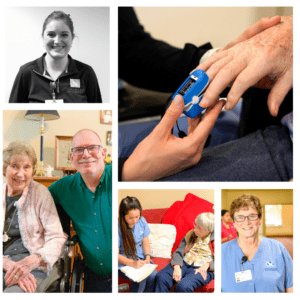While the terms are often used interchangeably by the public, Alzheimer’s Disease (AD) and dementia are two different conditions. The interchangeable usage most likely comes from the fact that AD is the largest contributing factor to dementia (60-70%, according to the World Health Organization).
What are the differences between AD and dementia? What are the signs? Can they be treated? Let’s take a look.
Alzheimer’s & Dementia
The biggest difference between AD and dementia is that AD is a specific disease while dementia is not. Dementia, while not a specific disease, is a group of symptoms that share similar properties. Symptoms of dementia include:
-
Memory loss
-
Lower cognitive function
-
Difficulty reasoning
Another lesser-known fact about dementia is that it is not caused by old age. Dementia is caused by damage to brain cells. This is why AD is the largest contributing group to dementia, as AD causes damage to brain cells over time.
While damage to brain cells has been established as the cause of dementia, the cause of AD has not been discovered. Aging is the main contributing factor to a person’s risk of being diagnosed with AD.
Signs of Alzheimer’s
While later-stage AD can look like or contribute directly to dementia, there are several signs that AD might be affecting an individual. As always, these are general symptoms–always talk to your doctor before taking any action.
There are 3 distinct stages of AD progression and signs & symptoms.
Early Stage Alzheimer’s
Many early signs of AD are often mistaken for general aging or high stress. The signs and symptoms of early-stage AD include:
-
Minor memory loss
-
Minor cognitive disfunction
-
Possible minor impairments to motor functions
-
Language problems/problems speaking
Middle Stage Alzheimer’s
The middle stage of AD progression occurs when a patient is unable to handle most daily routines and care for their needs. The signs and symptoms include:
-
Difficulty speaking due to being unable to remember vocabulary
-
Loss of reading & writing skills
-
More extreme behavior issues including aggression and uncontrollable emotions
-
Chronic irritability
-
Wandering
-
Potential incontinence issues
Late Stage Alzheimer’s
The final stage of AD (also known as final stage AD) starts when a patient relies on a caregiver for all of their daily needs. The symptoms include:
-
Loss of verbal language & speech
-
Chronic exhaustion
-
Loss of mobility
-
Loss of muscle mass & strength
The most common causes of death that occur in Late Stage AD patients are external factors. These include things like infections or internal issues the patient is unable to tell a caregiver about.
Charlin Health Services
At Charlin Health Services we pride ourselves on honor, integrity, excellence, compassion, dignity, and trust. If you have any needs or questions about health services, hospice care, or other medical needs, please send us an email or give us a call.
About Our Alzheimer’s Expert
Emilynn Bryce BSN, RN is the hospice director of nursing at Charlin Healthcare Services. Emilynn received a BS in registered nursing from St. Louis University. After graduating, Emilynn worked as a registered nurse at St. Luke’s Hospital in Chesterfield, MO. Emilynn has been with Charlin since 2018.
Listen to the full Charlin Alzheimer’s podcast here.



